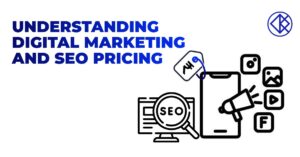Introduction: In the fast-paced world of digital marketing, where personalization and timely engagement are paramount, Marketing Automation has emerged as a game-changing strategy. This blog is your comprehensive guide to understanding the ins and outs of marketing automation, exploring its benefits, and providing practical insights on how to implement and leverage automation tools for business growth.
Table of Contents:
- What is Marketing Automation?
- Defining marketing automation.
- The evolution of marketing automation in the digital age.
- How automation differs from traditional marketing approaches.
- Key Components of Marketing Automation:
- Email marketing automation.
- Lead nurturing and scoring.
- Social media automation.
- Customer relationship management (CRM) integration.
- Benefits of Marketing Automation:
- Increased operational efficiency.
- Enhanced lead nurturing and conversion.
- Personalization at scale.
- Improved customer retention and loyalty.
- Choosing the Right Marketing Automation Platform:
- Evaluating features and functionalities.
- Scalability and integration capabilities.
- Aligning with business goals and requirements.
- Creating Personalized Customer Journeys:
- Segmenting your audience for targeted communication.
- Developing customer personas for tailored messaging.
- Mapping out automated workflows for different scenarios.
- Email Marketing Automation:
- Drip campaigns and automated sequences.
- Behavior-triggered emails.
- A/B testing for optimization.
- Lead Nurturing and Scoring:
- Implementing lead scoring models.
- Providing relevant content based on buyer journey stages.
- Aligning marketing and sales through lead qualification.
- Social Media Automation:
- Scheduling and publishing posts.
- Monitoring and engaging with social interactions.
- Social listening for audience insights.
- Integration with CRM:
- Creating a seamless flow of information between marketing and sales.
- Tracking customer interactions and touchpoints.
- Enhancing the overall customer experience.
- Measuring and Analyzing Results:
- Utilizing analytics tools within the automation platform.
- Monitoring key performance indicators (KPIs).
- Iterative improvement based on data insights.
Conclusion: Marketing Automation isn’t just a technological advancement; it’s a strategic approach to marketing that can revolutionize the way businesses engage with their audience. By automating repetitive tasks, nurturing leads, and delivering personalized experiences at scale, marketing automation empowers businesses to focus on creativity and strategy. As you embark on your marketing automation journey, remember to align your efforts with your business goals, stay agile in adapting to customer needs, and watch as your marketing becomes not just efficient, but a driving force behind your business growth.





